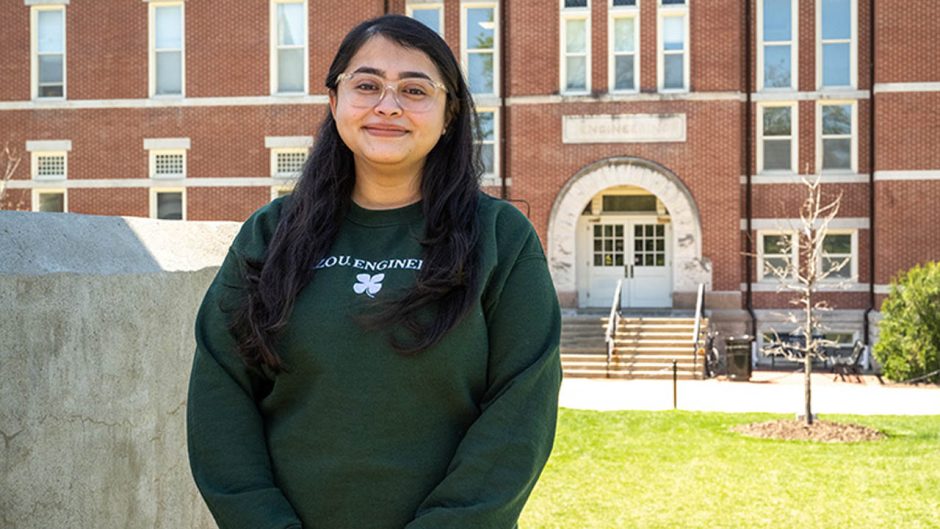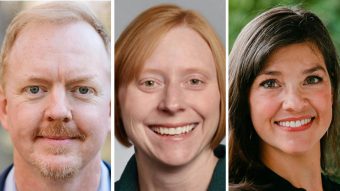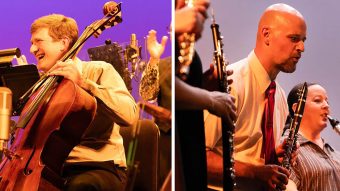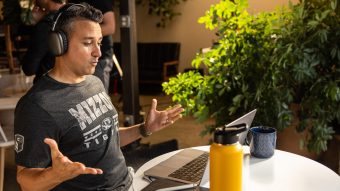By Mary Dillon

May 9, 2025
Photo by Zac Anderson
Apaala Basak, a doctoral candidate in biological engineering, is conducting life-saving research at the University of Missouri, developing a minimally invasive solution to managing dysphagia, also known as difficulty swallowing, in amyotrophic lateral sclerosis (ALS) patients.
Now she’s being recognized for her work both on campus and at the global level.
This spring, Basak received the Michael Donovan National Foundation of Swallowing Disorders Innovation Award 2025, an international recognition presented at the Dysphagia Research Society 2025 Annual Meeting.
“I’m honored to be recognized,” Basak said. “I think [the society] chose my work because of the potential impact. I’m still so early in my career — I haven’t defended yet — and the other award winners this year are all mid-career professional clinicians. I’m grateful to have my findings recognized alongside theirs.”
Harnessing light for medical breakthroughs
ALS is a neurodegenerative disease that affects the motor circuits in the brain, the central station for neural activity. Optogenetics as a neuroscience tool involves the use of light to momentarily modulate neural activity and record the neural signals in real time with millisecond-level precision.
Basak’s interdisciplinary approach is a promising solution for patients with ALS-related dysphagia who cannot undergo invasive surgery.
“Essentially, we inject a harmless virus tagged with a light-sensitive protein into a patient’s tongue that will integrate with neural membranes, making them responsive to light,” Basak said. “Then, whenever you shine a light on the tongue, the light sensitive protein will cause the tongue’s muscles to contract, thereby helping with swallowing. Our goal is to minimize deaths caused by an inability to swallow one’s own saliva.”
Post-diagnosis, ALS patients typically die within two to five years, with an eight-fold increase in deaths due to dysphagia. Current treatments are palliative, extending survival by a few months.
Basak’s treatment approach is unique and innovative because it improves swallowing outcomes while maintaining their quality of life.
“These patients already have motor deficits,” she said. “Undergoing major brain surgery and having a brain implant isn’t feasible for them. So, our goal is to develop a minimally invasive procedure. Think reducing surgery time from four to six hours down to 30 minutes. We have a strong chance of moving into clinical trials soon to begin testing on ALS patients.”
Read more from the College of Engineering


